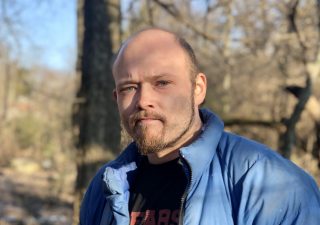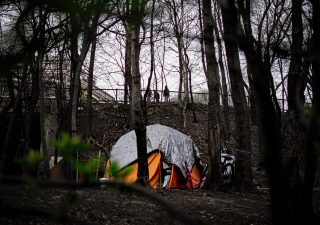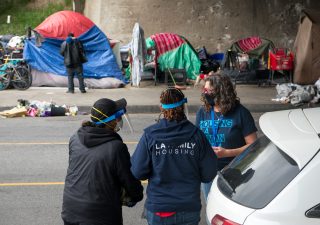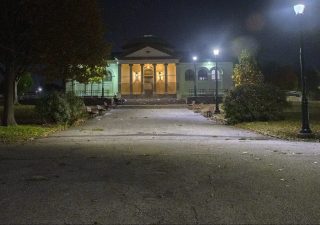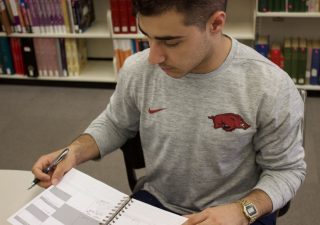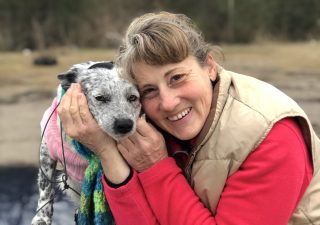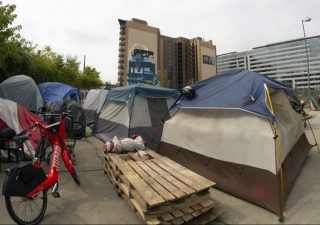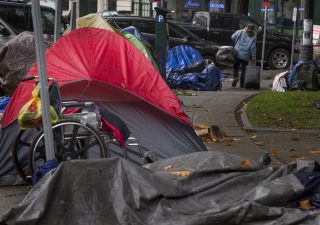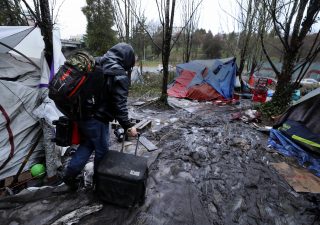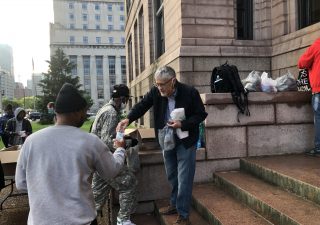William set up his tent in an encampment near the University of Arkansas. Then, he was evicted.
The Howard Center for Investigative Journalism
As the wealthy move in, homeless people are pushed out
Communities nationwide — including just blocks from the White House — are struggling with the growing number of tent cities.
Project Roomkey, the Golden State’s grand experiment
When California issued its shelter-in-place order on March 19, hotel occupancy rates throughout the state plunged into the single digits.
Philadelphia hit homelessness and drug addiction head on
Philadelphia was plagued by two epidemics in 2017: Opioid addiction and homelessness. The city addressed them as intertwined crises.
Many homeless college students are hiding in plain sight
Nearly four in 10 college students reported not having adequate housing.
Homeless women face extra health, safety worries
Many homeless women fear for their safety even when they are able to secure shelter.
Tensions rise when businesses, homeless people share the same space
In the 1990s Washington created Business Improvement Districts to “promote economic growth and employment.”
What is an encampment? Don’t ask Massachusetts
The lack of a clear encampment definition, when and how a cleanout will be done and what services are available to displaced occupants creates legal risk for authorities and further traumatizes displaced homeless individuals.
Nowhere to Go
This yearlong project, a collaboration among seven journalism schools, did deep dives into the causes and potential solutions to homelessness. The investigation told the stories of people living on the streets and people facing eviction from apartments, trailer parks and public housing during the pandemic. It documented the consequences when cities criminalize homelessness and examined whether one alternative — community courts — is effective. The Howard Center developed a suite of web scrapers to gather tens of thousands of court records from online court record management systems, and partnered with Stanford University’s Big Local News project to extend the technology for use by a wider group of journalists. In addition to Stanford, the collaboration included the University of Oregon, Boston University, the University of Arkansas, the University of Florida and Arizona State University.
A First Amendment right to feed?
A constitutional clash between a religious belief in feeding the hungry and a city food-sharing ban.

